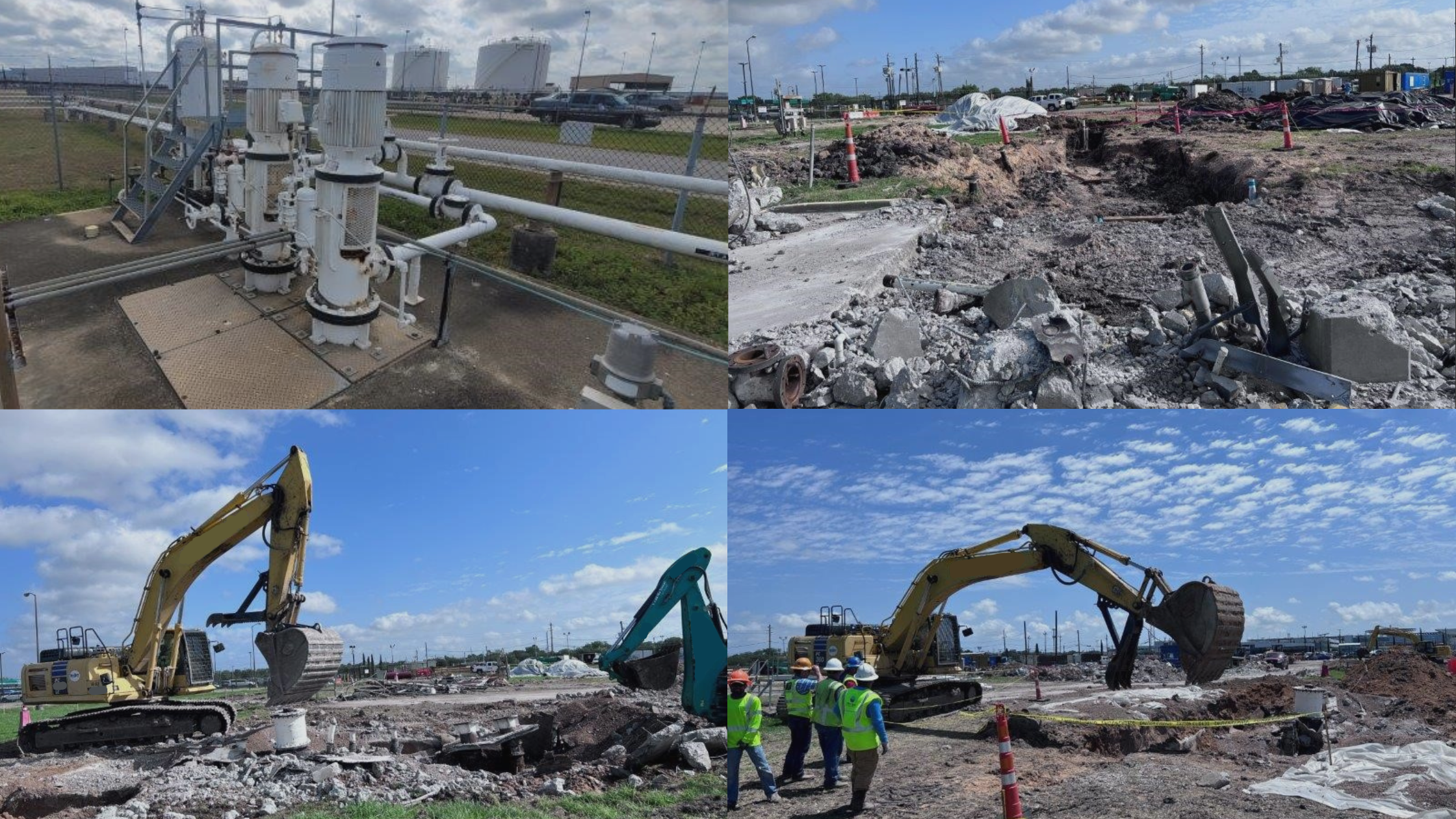
William P. Hobby Airport, Houston, Texas
Scope of Work
Two aircraft fuel farms required underground petroleum storage tank removals, release reporting, and corrective action. This Project consisted of the permanent removal of one (1) 10,000-gallon, one (1) 1,000-gallon & One (1) 550- gallon jet fuel underground petroleum storage tanks (USTs) and fuel piping from the north tank farm and removal of one (1) 1,000-gallon waste jet fuel tank from the east fuel farm. A Texas 811 Utility Locate notifications was submitted 48 hours prior to mobilization. The necessary soil and fluid samples were collected in accordance with the TCEQ Regulatory Guidance document RG-411 to draft the TCEQ UST Closure Report. The TCEQ sampling, analysis, and reporting are based on the number and size of the UST, the estimated length of piping, and number of dispensers used at the facility. The excavations were be backfilled to match existing grade using select fill and compacted using onsite equipment. Upon receipt of the laboratory chemical analysis results, TCEQ Release Determination Reports were prepared and submitted to the TCEQ. While the tanks were permanently removed from the ground, the pre-existing site conditions included impacted groundwater and up to 2-feet of light non-aqueous phase liquid (LNAPL). Operations and maintenance of the product recovery system optimized LNAPL recovery to the maximum extent possible, groundwater monitoring demonstrated dissolved and free phase plume stability, and the LPST case was closed.
The following criteria were part of the justification used for final closure:
• There is no documented beneficial use of the shallow impacted groundwater zone and no water wells were identified within a 1/2 mile radius of the subject site;
• Dissolved-phase concentrations are below the default target concentrations for construction worker exposure;
• Contaminant concentrations in soil are below health-based and explosive concentrations; and
• Although Non-Aqueous Phase Liquid (NAPL) is present at the site, it is limited in areal extent and has been removed to the maximum extent practicable.
CRG Texas delivered the professional and technical expertise to close the LPST case under budget and ahead of the estimated schedules, thus saving the client thousands of dollars and time needed to redevelop the property.
Does this sound like a project we can help you with? If so make sure to fill out our contact form for a free quote.

